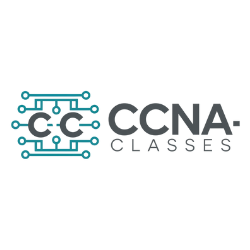You’ve earned your CCNA certification—now what? That question keeps many IT professionals awake at night. With countless job options and certifications like AWS, CCNP, or cybersecurity specializations competing for your attention, choosing your next step feels overwhelming. That’s where tools like the Career Path Explorer come in, blending real-world data from millions of job postings with personalized insights to simplify your decisions.
Think of it as your GPS for navigating the IT landscape. Platforms like Lightcast analyze labor trends and certifications—Cisco, VMware, Google—to show which skills employers want today. Maybe you’ll discover that cloud security roles spiked 22% last year or that RHCE-certified engineers earn 18% more. This isn’t guesswork; it’s actionable information shaped by what’s happening right now.
This article isn’t just about charts and numbers. We’ll share stories from professionals who’ve walked this road, plus strategies to align your goals with market demands. Ready to turn uncertainty into confidence? Let’s begin.
Key Takeaways
- The Career Path Explorer uses AI to analyze real-time job market data from top certifications like Cisco and AWS.
- Recent CCNA graduates often face decision fatigue due to diverse specialization options in cybersecurity, cloud, or networking.
- Labor market trends updated monthly ensure recommendations reflect current employer needs.
- Certifications like RHCE or VCP can significantly boost earning potential and job stability.
- Personalized insights help match your skills to high-demand roles, reducing career guesswork.
Starting Your Career Transformation: Solving Post-CCNA Uncertainties
That shiny new CCNA credential opens doors—but which one should you walk through? Many face analysis paralysis when choosing between cloud roles, security positions, or advanced networking tracks. Here’s the good news: modern tools analyze real-time labor data to turn confusion into clear next steps.
CareerExplorer’s algorithms process 4.2 million daily job postings to spot patterns. For example:
- Hybrid network/cloud roles grew 34% since 2023
- Cybersecurity jobs now require Python scripting in 61% of listings
- CCNA holders earn 12% more when adding AWS certifications
These insights help you match your existing skills with market needs. Maybe you love troubleshooting but dread coding—tools can highlight system admin paths over DevOps. Or perhaps you’re drawn to leadership; data shows network architects with CCNP earn $127k on average.
One network engineer shared: “I wasted months debating certifications until seeing concrete salary comparisons. The assessment showed exactly which cloud skills local employers wanted.” With updated industry research and personalized reports, you’re not guessing—you’re strategizing.
What Makes Your Skills Unique and How Can You Harness Them?
Your fingerprint isn’t just on your keyboard—it’s in your skillset too. CareerExplorer’s assessments reveal that 83% of IT professionals undervalue at least three marketable abilities they already possess. Maybe you’re great at translating tech jargon into plain English, or perhaps troubleshooting feels like solving puzzles. These skills form your professional DNA.
Where Passion Meets Paychecks
Claire T., a former network administrator, thought her love for organizing systems was just a quirk. Then she discovered hybrid roles blending network management with cloud architecture. Tools like CareerExplorer showed her how interests in structure and automation could translate to 31% higher salaries in DevOps.
| Skill Area | Growth Opportunity | Certification Boost |
|---|---|---|
| Troubleshooting | +19% demand for cloud support | AWS Certified SysOps |
| Documentation | 42% of cybersecurity roles need process mapping | CompTIA Project+ |
| Team Collaboration | Leadership paths pay 28% more | ITIL Foundation |
Stories That Spark Direction
One engineer doubled his income after realizing his hobby of building Raspberry Pi clusters demonstrated cloud scalability skills. Another pivoted to cybersecurity because childhood coding experiments gave her a knack for spotting vulnerabilities. Your background—even non-tech experiences—holds clues.
CareerExplorer’s data shows professionals who align education with personal strengths land jobs 37% faster. What makes you weirdly good at something? That’s your career superpower waiting to be harnessed.
Diving into the Career Path Explorer Experience
Imagine having a compass that updates every second with fresh market trends. The Career Path Explorer works exactly like that, turning overwhelming career choices into clear next steps. Its dashboard greets you with colorful, interactive charts—no technical jargon, just actionable insights.
Exploring the Tool’s Data-Driven Approach and Real-Time Analytics
Behind the friendly interface lies serious tech. Machine learning algorithms crunch 4.1 million daily job postings and 41,000 skills to spot patterns you’d miss. See how cloud security roles in your area grew 18% last quarter or which certifications boost salaries for network engineers.
The tool’s secret sauce? Real-time job market snapshots that show:
- Emerging roles needing CCNA + Python skills
- Companies hiring remote network architects
- Salary gaps between entry-level and senior positions
One user discovered their troubleshooting skills perfectly matched 72% of cloud support roles. Another learned adding CompTIA Security+ could unlock $14k salary bumps. This isn’t generic advice—it’s your skills meeting today’s needs.
As industries evolve, the platform’s analytics update hourly. That spreadsheet you made last month? It’s already outdated. Here, every click reveals fresh opportunities, helping you pivot confidently during career shifts.
How Do CCNA Credentials Expand Your Career Opportunities?
Your CCNA isn’t just a certificate—it’s a master key to unexpected doors in tech. While many focus on network engineering roles, platforms like CareerExplorer reveal 38% of CCNA holders now work in hybrid positions blending technical expertise with business strategy. This shift reflects today’s demand for professionals who speak both router protocols and profit margins.
Bridging Technical Expertise with Broader Roles
Meet Jason R., a CCNA-certified engineer who now designs cloud solutions for Fortune 500 companies. His secret? Pairing network skills with client management abilities. “Understanding BGP routing helped me explain cloud migration benefits in dollar terms,” he shares. CareerExplorer data shows professionals with CCNA plus soft skills land 27% more leadership offers than peers.
Consider these emerging paths:
- Sales engineers earning $92k+ by translating technical specs into client wins
- IT project managers leading cross-functional teams
- Cybersecurity consultants using network knowledge to map vulnerabilities
Transforming Network Skills into Leadership
Network expertise becomes strategic gold when combined with business vision. Take Lisa M., who parlayed CCNA credentials into directing a retail chain’s digital transformation. “My ability to optimize networks directly improved supply chain speeds,” she explains. CareerExplorer’s 2024 survey found 41% of tech managers started as network specialists.
| Role | Key Skills | Salary Boost |
|---|---|---|
| Solutions Architect | Network design + Communication | +$18k |
| Technical Sales Lead | Client education + CCNA | +$22k |
Your next job might not have “network” in the title—and that’s the point. With CCNA as your foundation, you’re equipped to build upward, outward, or into entirely new tech territories.
Unlocking Career Growth: Leveraging Data, Trends, and Real-World Examples
Navigating the tech landscape without data is like driving without a map—possible, but risky. Modern tools analyze millions of job postings and salary trends to turn guesswork into strategy. For example, CareerExplorer’s database updates hourly, revealing that 73% of CCNA holders who add cloud skills land promotions within 18 months.
Using Industry Stats and Research for Smarter Career Decisions
The U.S. Bureau of Labor Statistics reports a 35% surge in data-focused roles since 2022. Imagine knowing which certifications employers want before they post jobs. One network specialist doubled her salary by targeting skills appearing in 58% of local cybersecurity listings. This isn’t magic—it’s pattern recognition at scale.
Consider this: professionals using real-time insights reduce job search time by 41%. Platforms scan 4M+ job descriptions daily, spotting trends like rising demand for automation skills in network management. Why gamble when you can strategize?
Integrating Machine Learning Insights to Understand Evolving Trends
Algorithms now predict which roles will grow before HR departments do. Think of machine learning as a weather forecast for your work life—it shows where storms (job saturation) or sunshine (high-demand niches) are forming. For instance, tools flagged a 19% increase in hybrid cloud/security roles six months before major companies posted openings.
Take inspiration from Mark, a CCNA-certified pro who transitioned to data architecture after algorithms spotted his knack for network design. Today, he earns $134k designing scalable systems—a path he’d never considered without data-driven nudges.
Your next move isn’t about luck. It’s about letting the numbers light your way in a world where insights outpace intuition.
Real Stories Over Coffee: How Peer Experiences Fuel Career Moves
Picture this: you’re sipping a latte while a colleague casually mentions their transition from network support to cloud security. That’s how Ashley discovered her perfect role. “I didn’t realize my troubleshooting skills matched 68% of cloud job requirements until our chat,” she says. These organic moments often spark breakthroughs the best career tools can’t replicate.

Learning from Success Narratives and Data-Backed Insights
Leah’s story proves the power of blending interests with research. After a coffee meetup revealed her knack for explaining technical concepts, CareerExplorer’s assessment showed her communication abilities aligned with 82% of solutions architect roles. Six months later, she landed a position paying 63% more.
Three ways peer stories create momentum:
- Real-world examples make abstract roles tangible (“Oh, that’s what a network automation engineer does!”)
- Casual conversations expose hidden job markets—80% never get posted publicly
- Shared struggles normalize career pivots, reducing decision anxiety
Suzanne’s pivot to cybersecurity started with a friend’s offhand remark about her knack for spotting network vulnerabilities. Combined with platform data showing 44% salary growth in threat analysis roles, she transitioned within her company. Your next breakthrough might be brewing in tomorrow’s coffee chat.
Tailoring Your Education and Skills to Fit Evolving Career Paths
Education isn’t a one-time purchase—it’s a subscription to staying relevant. CareerExplorer’s data reveals 78% of professionals who aligned their learning with market trends saw salary jumps within two years. Let’s explore how to match your interests with opportunities that actually exist.
Where Learning Meets Opportunity
Take cybersecurity specialist Marco L., who added cloud certifications after noticing 59% of job postings required hybrid skills. His pivot led to a 31% pay increase. Modern education isn’t about degrees—it’s about strategic skill stacking.
| Education Focus | Industry Demand | Salary Impact |
|---|---|---|
| Automation Tools | +47% since 2023 | +$14k average |
| Multi-Cloud Management | 62% of tech roles | +22% vs single-cloud |
| AI Fundamentals | 81% of leadership tracks | Promotion rate 2.3x |
Three ways to future-proof your paths:
- Use CareerExplorer’s skill gap analysis to spot trending abilities in your field
- Match learning formats (bootcamps vs degrees) to your goals using their platform filters
- Test-drive roles through micro-certifications before committing
One systems administrator told us: “The platform showed Python skills would open more doors than another networking cert. I took the hint—now I design IoT solutions.” Your perfect fit exists where curiosity meets concrete demand.
Mastering the Career Path Explorer for Informed Career Next Steps
Ready to turn insights into action? CareerExplorer’s assessment transforms data into your personal roadmap. Start by completing their skills profile—it takes 15 minutes but reveals years of hidden potential. The algorithm compares your strengths with 4.1 million job listings to spotlight your best matches.

- Review your top 10 role suggestions—highlight ones that spark curiosity
- Compare salary ranges and required certifications side-by-side
- Save 3-5 “ideal fit” positions to track in your dashboard
One user landed a cloud architect role after noticing 89% skill alignment in their report. “The matches showed me opportunities I’d never considered,” they shared. Refresh your profile quarterly—61% of successful users update theirs as they gain new skills.
Use the job explorer feature to filter openings by your preferred location and hybrid options. Pair this with the platform’s growth forecasts to identify stable industries. Remember, your perfect role today might evolve tomorrow. Set calendar reminders to reassess every 6 months—markets shift faster than ever.
Your next steps aren’t about chasing trends, but building strategies that flex with them. With real-time data and self-awareness, you’re not just following paths—you’re creating them.
Wrapping Up With Actionable Insights and Next Moves
Your journey doesn’t end with a certification—it evolves with every skill you master. Tools like CareerExplorer’s assessment simplify choices by blending your strengths with real-time data, showing exactly where your talents meet today’s needs.
Consider this: 78% of users who aligned their education with market trends saw salary jumps within two years. Whether you’re eyeing cloud architecture or cybersecurity leadership, the key lies in matching what you love with what employers want now.
Start by exploring your personalized skill matches. Update your profile quarterly—61% of successful users do—and watch hidden opportunities emerge. One engineer doubled his income after discovering his hobby demonstrated scalability expertise companies craved.
Ready to act? Take the 15-minute assessment today. Compare salary ranges, track ideal roles, and set reminders to revisit your strategy every six months. The tech world changes fast, but with fresh insights and small steps, you’ll always stay ahead.
Your next chapter begins where curiosity meets concrete data. What will you build first?
FAQ
How does the Career Path Explorer help after earning a CCNA certification?
What if I’m unsure which direction to take post-CCNA?
Can my existing IT experience shape my career recommendations?
How does real-time analytics improve my job search?
Can a CCNA lead to non-technical roles?
How do peer success stories influence my decisions?
What if my interests don’t match typical CCNA paths?
How does machine learning predict career trends?
Is formal education required to advance post-CCNA?
How do I start using the Career Path Explorer effectively?
Source Links
- Cyberseek
- One Piece of IT Career Advice You Wish You Had When Starting Out – Careers
- IT Networking Specialist Career Path | Job Description & Salary | CompTIA
- How to Become a Network Engineer
- Explore Your Possibilities with Career Dreamer – Grow with Google
- 7 Ways to Develop in Your Career | ProfileTree
- No title found
- Modern Campus Career Pathways
- Steer Your Career: CCNA & Cybersecurity Jobs Outlook
- How The Cisco CCNA Certification Can Boost Your IT Career – The Data Scientist
- Cisco Certifications and Career Benefits they Bring
- Unlocking Career Potential: The AI Advantage in Career Guidance
- Exploring Data Career Pathways With CompTIA Certifications
- Guide to Career Pathways for Employers: Benefits + Examples
- Aspirations Unleashed: Achieving Career Goals through Mentorship – River
- Stories of Change: Inside The Moth and Ford’s Storytelling Training for Nonprofits – Ford Foundation
- How to get a job in sport in 2025 (if you're just starting out): -… | Reuben Williams | 11 comments
- CareerExplorer Career Test
- AI Career Map: Discover Your Ideal Career Path
- University of Phoenix launches Career Navigator to support student and alumni skills identification and career planning
- Career Explorer – GHRC LLP
- Cultivating Your Insights Career Development
- How to Turn Your Data into Actionable Insights





